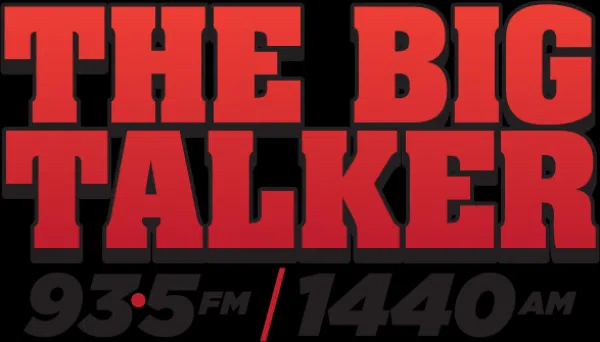TOPEKA (KSNT) – Cattle rustling may sound like a thing of the past, but the act of stealing livestock is still alive and well in Kansas.
Early Kansas history is steeped in stories of long cattle drives moving through the state along the Chisholm Trail which led to the creation of famous cowtowns like Abilene and Dodge City, according to the Kansas Historical Society (KSHS). While cattle drives slowly gave way to ranching operations over the years, criminals continue to target this large industry in Kansas.
27 News checked in with the Kansas Attorney General’s (AG) Livestock Brand Investigation team and the Kansas Livestock Association (KLA) to find out how cattle theft is impacting the state’s ranchers. Criminals, just as they did during the days of the wild west, are finding that cattle theft is a lucrative practice while ranchers wind up paying the price.
Kansas sheriff seizes $4 million in marijuana, cocaine during traffic stop
Scarlett Madinger, vice-president of communications with the KLA, said cattle theft isn’t a huge issue for the state overall, but it does harm on a smaller scale to ranchers and their families. People who rely on livestock to pay their bills may find themselves in financial trouble when cattle go missing.
“Money and time lost turns into a big issue for those impacted,” Madinger said.
Madinger said ranchers do the best they can most of the time by following branding and tagging practices to mark out which cows belong to them. She said that routinely checking the herd will also help law enforcement pinpoint when a theft occurred.
“Count them [cows] frequently,” Madinger said. “If one morning you go out and the count doesn’t add up it helps authorities and helps narrow down that time frame.”
Cattle thieves will often look for vulnerabilities to exploit before taking off with one or more cows to sell in a nearby county or even another state. Something as simple as an unlocked gate can provide an opening.
“Unfortunately, it isn’t something that’s gone out of style per se [cattle theft],” Madinger said. “There’s a lot of folks who feel that stealing cattle can give them some quick money.”
Topeka farmer accused of defrauding the federal government
Jim Pinegar with the AG’s Livestock Investigation Unit said cattle thefts are mostly “crimes of opportunity.” Thieves will watch a ranch and the people who work it long enough to recognize daily routines and patterns in order to identify a possible opening.
“Most agriculture people have set routines,” Pinegar said. “They go to church, the café, feed store, ball games at the same time their neighbors also attend. With a known pattern, criminals know the window of opportunity.”
Pinegar said producers lost more than $4.3 million in Fiscal Year 2024 due to cattle theft. The Livestock Investigation Unit usually has around six to 20 active cases of cattle theft at any given time.
“One of our biggest problems is trying to convince producers to brand their cattle,” Pinegar said. “There are around 18,000 registered brands in Kansas. Only a small percentage are used. If the opportunity is in the Flint Hills, it will probably be stockers and feeders.”
Madinger and Pinegar said cattle thieves will often target beef cows. Specifically, cow-calf pairs or those which are more easily accessible.
“Thieves feel like they can make a quick turnaround by selling those calves,” Madinger said. “Ranchers are continually trying to prevent it.”
Driver caught speeding 114 miles per hour in Topeka, fined nearly $1,000
The Livestock Investigation Unit is also seeing a lot of cases involving internet theft that are causing financial damage to ranchers. Pinegar said in 2024 alone his unit investigated four cases of internet theft which amounted to $1.3 million in losses.
“Producers will call about cattle advertised on the web,” Pinegar said. “They purchase the cattle in good faith then wire the money to out of state banks. They trust the cattle purchased, sight unseen, will be delivered as advertised. They either don’t receive their cattle or the seller uses a bait and switch method and sends lesser quality animals.”
Pinegar said his unit encourages ranchers to be cautious when buying cattle online and to never wire money to a stranger without checking them out first. He said producers should only hand over payment once the cattle are loaded onto trucks.
Madinger said ranchers should try identifying their cattle as permanently as possible such as through the use of branding. You can learn more about the Kansas Department of Agriculture’s (KDA) Livestock Brands Program by clicking here. You can submit stray or stolen livestock reports to the KDA by clicking here.
“Know your neighbors, know who’s going in and out,” Madinger said. “Even if you don’t own any cattle, you can still be a good neighbor and alert them of anything that doesn’t seem quite right.”
Near-record fish caught, released in a northeast Kansas lake
For more crime news, click here. Keep up with the latest breaking news in northeast Kansas by downloading our mobile app and by signing up for our news email alerts. Sign up for our Storm Track Weather app by clicking here.
Follow Matthew Self on X (Twitter): https://twitter.com/MatthewLeoSelf



